Volunteering with whales and dolphins
Are you fascinated by the protection of biodiversity, with a particular passion for marine animals? Volunteering with whales and dolphins abroad offers a unique opportunity to contribute directly to the protection of these fascinating sea creatures while gaining valuable experience in marine research and conservation.
By participating in whale and dolphin programs, volunteers can help reduce the impact of threats such as hunting, noise pollution from ships, marine pollution, and inadequate distance from observers. The Volunteering with animals abroad enables participants to raise their awareness of environmental and conservation issues while gaining practical experience and contributing to the conservation of biodiversity.
Volunteers in dolphin and whale projects engage in activities ranging from research and data collection on the marine animals to educating the public about the importance of wildlife conservation. Discover the fascinating world of whales and actively contribute to protecting these majestic sea animals!
More projects These projects could interest you
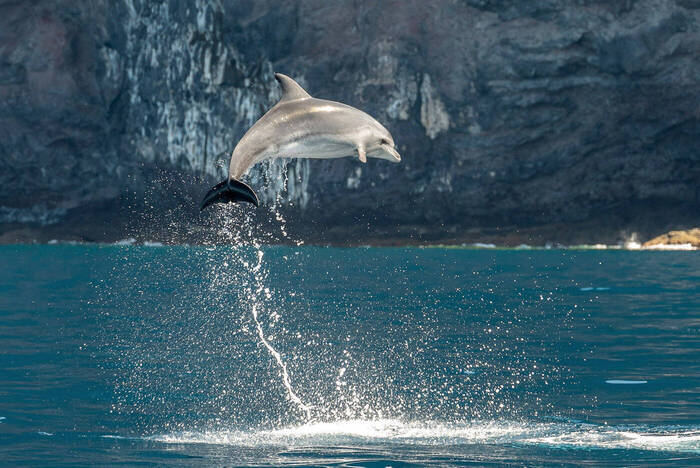
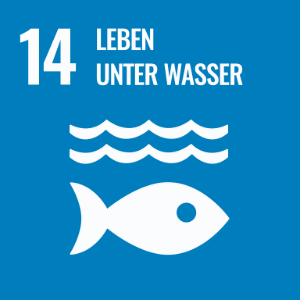
Spain | Dolphins & Whales
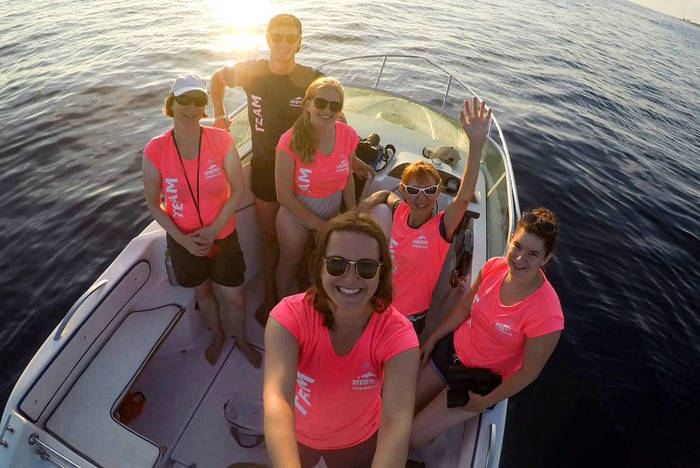

Croatia | Dolphins & Whales
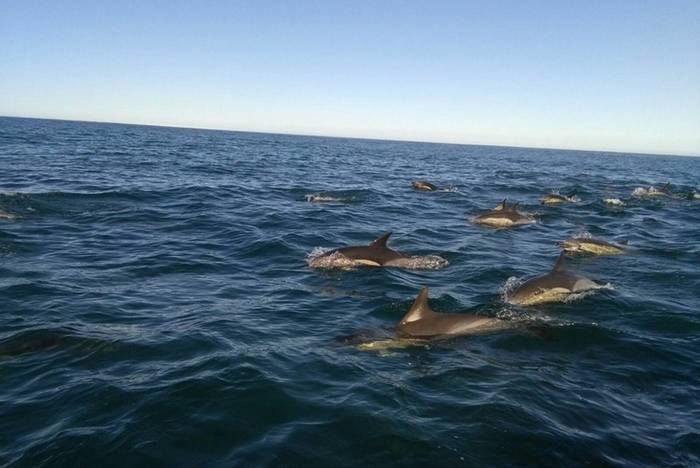

South Africa | Dolphins & Whales
Dangers for whales and dolphins: focus on bycatch, overfishing and noise pollution
The diversity, colorful coral reefs and the immense depth of the sea are impressive. However, the habitats of marine animals are at considerable risk due to human influences and climate change. These threats mean that numerous sea creatures are harmed or even threatened with extinction.
Bycatch and overfishing: The invisible threat to whales and dolphins in the fight for survival
The world's greatest threat to whales and dolphins is accidental capture, known as Bycatch, Overfishing also causes a lack of food for dolphins and harmful fishing equipment destroys their natural habitats. Every year, around 300.000 whales and dolphins die in fishing nets, exceeding the death toll at the height of commercial whaling.
The scarcity of food makes it much more difficult for marine animals to find food. But it's not just the direct deprivation of their food source that has a negative impact. Fishing nets and ships also pose a serious threat: marine mammals often get caught in nets in which they then perish. In addition, collisions with boat engines are increasingly causing injuries to animals.
Noise pollution underwater: The silent distress call of marine mammals
The Noise levels in the oceans doubles every ten years, but there is still no international agreement to protect against underwater noise. Whales and dolphins use echolocation using sound waves to navigate and hunt in the open ocean. Increasing noise pollution underwater impairs this essential ability, leading to loss of orientation and, in severe cases, strandings with fatal consequences.
High volumes make communication difficult - a problem that also affects whales and dolphins. Their ability to communicate with each other is impaired, resulting in predators or prey being able to approach unnoticed. There is also a risk that mothers and their young will be startled and get lost.
Plastic threat in the oceans: Inescapable danger to marine animals
Marine pollution is continually increasing, which has far-reaching consequences for whales, dolphins and other marine life. Lost fishing nets pose an additional threat as marine animals can become entangled in them. Whether as a plastic bag in the digestive tract, as a life-threatening chain around the body or as a toxic substance: marine animals cannot escape the threat of plastic. Worldwide it has been found in the stomachs of more than 240 different animal species Plastic waste proven.
Even the smallest particles such as microplastics are highly risky as they release toxic substances that pollute the marine ecosystem. Almost all species of whales and dolphins in the Mediterranean are classified according to the updated Red List International Union for Conservation of Nature (IUCN) classified as endangered. Whales and dolphins probably ingest plastic bags so often because they consider them to be their natural prey, such as jellyfish or squid. Despite a full stomach, they ultimately die of hunger because it is filled with plastic.
The Secret Whale Hunt: Preserve the Giants of the Ocean
Although commercial whaling is restricted or banned in many parts of the world, it continues to be practiced in some countries. This leads to the direct decimation of whale populations. Despite international objections, Norway and Japan are currently still conducting intensive activities whaling through. They justify this practice by claiming that whales are responsible for the decline of various fish populations, which is why their hunting is necessary.
In recent decades, international agreements such as the moratorium on commercial whaling International Whaling Commission (IWC) and International Trade in Endangered Species (CITES) have helped reduce whaling and improve protection of endangered whale populations.
If, like us, you are against the extinction of animal species and against violence against animals, then support them Petition to end whaling.
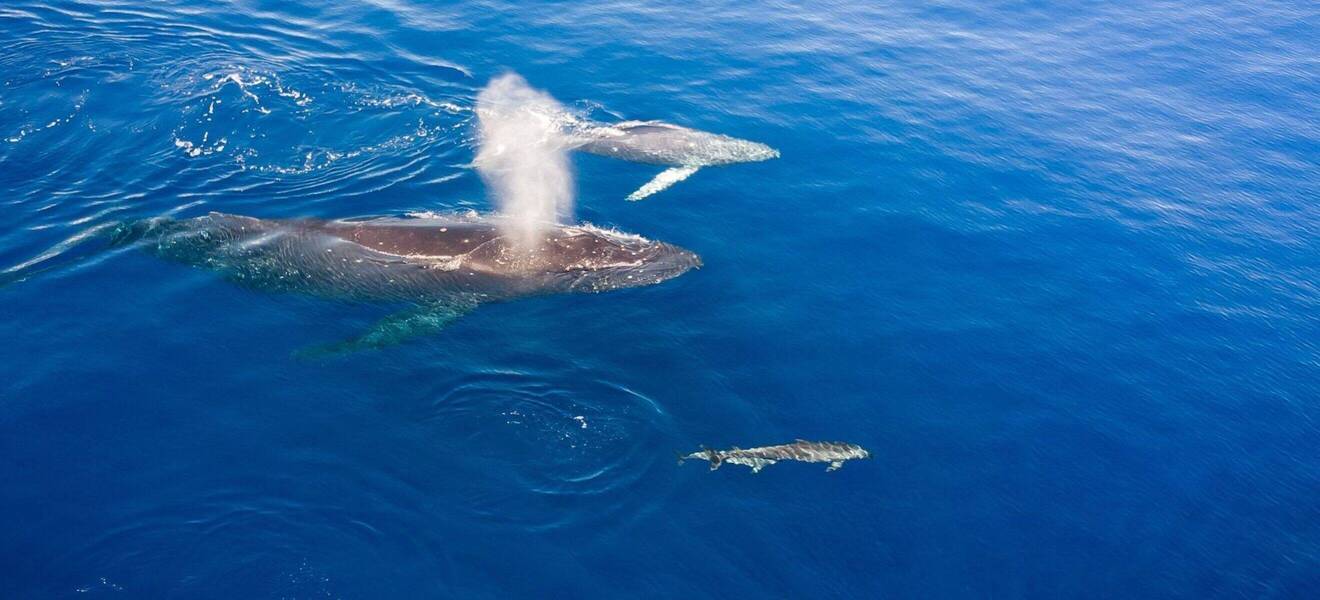
Protecting whales and dolphins: volunteering for habitat conservation, research and education
We offer a variety of engagement opportunities to support dolphin and whale conservation. This can be done through specific projects that focus directly on these fascinating sea creatures, or through actions that contribute to the conservation of the oceans in general to preserve the habitat of whales and dolphins. You can register as a volunteer on the Canary Island Tenerifein Croatia, Italy or South Africa get involved!
By participating in projects to preserve and protect the habitats of whales and dolphins, you can gain valuable knowledge about the preservation of the ecosystem and actively contribute to protecting it sustainably. In your research work, you collect crucial data that helps conserve whale and dolphin populations. You will also make a significant contribution through educational work by informing both tourists and locals about important issues related to the protection of these sea creatures.
The main tasks usually include assisting with scientific research projects, monitoring populations and studying the consequences of the Environmental pollution on the welfare of the animals. Overall, your tasks as a volunteer are very diverse. They range from data analysis and informing the population to boat monitoring and recovery of stranded marine animals.
Volunteering in dolphin and whale projects: Respectful access and active animal protection in our programs
In some of our programs we offer the opportunity to experience whales and dolphins in their natural habitat and observe them from a distance. Our main goal is to protect these wildlife. It is important to respect their habitat and not get too close to them so as not to stress them unnecessarily. However, if they voluntarily decide to explore the boat or the surrounding area, you will have the opportunity to see them up close. However, it's important to accept when they don't.
On the one hand, you can participate in research, but on the other hand, educational work is crucial to inform people about how they can help protect species. This is an essential step in preserving the animals and their habitats. Another relevant aspect is nature conservation. Even in projects that focus on the Protection of the seas and generally focus on nature conservation, you make a valuable contribution to the well-being of whales and dolphins.
This is ours Well-being of the animals a special concern. We are therefore actively committed to animal protection and promote animal welfare. During project work, direct contact with wild animals is only permitted for animal keepers or veterinarians and is kept to a minimum.
The Volunteer activities abroad are an excellent opportunity to immerse yourself in the cultures of host countries, learn new skills and become part of a community of like-minded people committed to protecting our planet. Our animal rescue initiatives enjoy alongside the social work abroad high recognition and popularity.
